Outreach & volunteering

RORO
Meteorites
PACN
Solutions in Science
International Women in Chromatography
International Symposium on Chromatography
Royal Society of Chemistry Book Editoral Board

Editorial board members are an integral part of academic publishing. They frame the breadth of chemical enquiry, ask crucial questions to delve further into research, and help guide the chemical science community towards future discoveries.
Offering their expertise to ensure outstanding, high quality science, editorial board members define the scope of cutting-edge scientific literature.
Each Royal Society of Chemistry journal and book series has its own editorial board, which is responsible for deciding key elements of our publishing criteria, such as setting and maintaining the RSC scientific policies and standards. These boards are made up of leading scientists who are active in academia or industry, and they apply their knowledge and expertise to support the development of the journals and books, as well as uphold a consistently high standard of content. This work helps shape the future of the chemical science community.
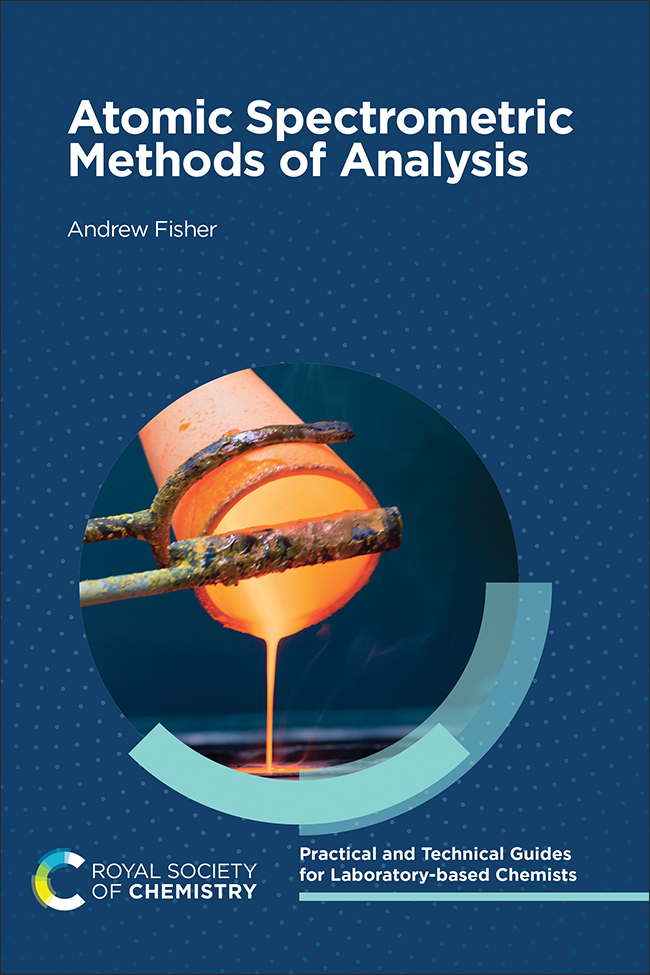
Diane Turner, Senior Consultant and Director, is one of the board members for the Practical and Technical Guides for Laboratory-based Chemists series. This series provides a suite of accessible, practical and technical guides for chemists and laboratory technicians to address the need for laboratory skills development. The topics covered are broadly in analytical science and chemistry. They are technical books to help develop skills, keep users up to date with technical developments, especially those that can save time and improve reliability, and provide guidance to ensure strict safety procedures and safety checks. The books are interdisciplinary so could be used in chemical, biological, physical and life sciences laboratories. The primary audience for the series is practising analytical chemists and scientific laboratory technicians across academia and industry including teaching laboratory technicians based in educational institutions, public health organisations and environmental agencies and utility companies.
Diane is one of the authors for the Gas Chromatography-Mass Spectrometry: How Do I Get the Best Results? book with the RSC. Throughout the book, case studies illustrate the practical process, the techniques used and any common challenges. Newcomers can easily search for answers to their question and find clear advice with coloured images on how to get started and all subsequent steps involved in using GC-MS as part of a research process. Readers will find information on collecting and preparing samples, designing and validating methods, analysing results, and troubleshooting. Examples of pollutant, food, oil and fragrance analysis bring the theory to life.
RORO (Recycling Organisation Research Opportunities)
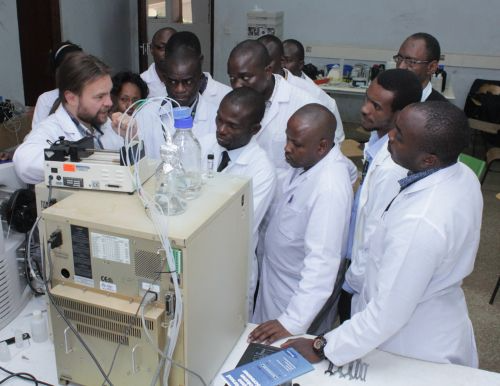
Anthias Consulting is very proud to support RORO (Recycling Organisation Research Opportunities). Anthias consultant Dr Diane Turner is trustee and Dr Giles Edwards is Technical Director & Founder Trustee for the charity.
The charity works to connect redundant analytical instrumentation with academic institutions in the developing world.
In September 2015, Dr Diane Turner and Dr Imran Janmohamed from Anthias Consulting worked with The Open University to configure and send a Gas Chromatograph
Flame Ionization Detector (GC-FID) to the National University of Mongolia for air pollution analysis. Read the full story on International Labmate, which follows the journey from the initial assesment of what was needed, through to acquiring, testing, shipping and installation of the instrumentation. RORO installed donated equipment that was then used for training at the first LC-MS workshop facilitated by the Royal Society of Chemistry Pan Africa Chemistry Network (PACN) at Jomo Kenyatta University of Agriculture and Technology (JKUAT) in Nairobi, Kenya, in September 2017. Dr Giles Edwards wrote the course materials as part of his work for Anthias Consulting and delivered the training with Prof Anthony Gachanja from JKUAT. Read more about the training here.
Read more about the partnership between RORO, universities, businesses and the RSC PACN in this article on the Royal Society of Chemistry’s website.
Find out more about RORO on the charity’s website.
Meteorites
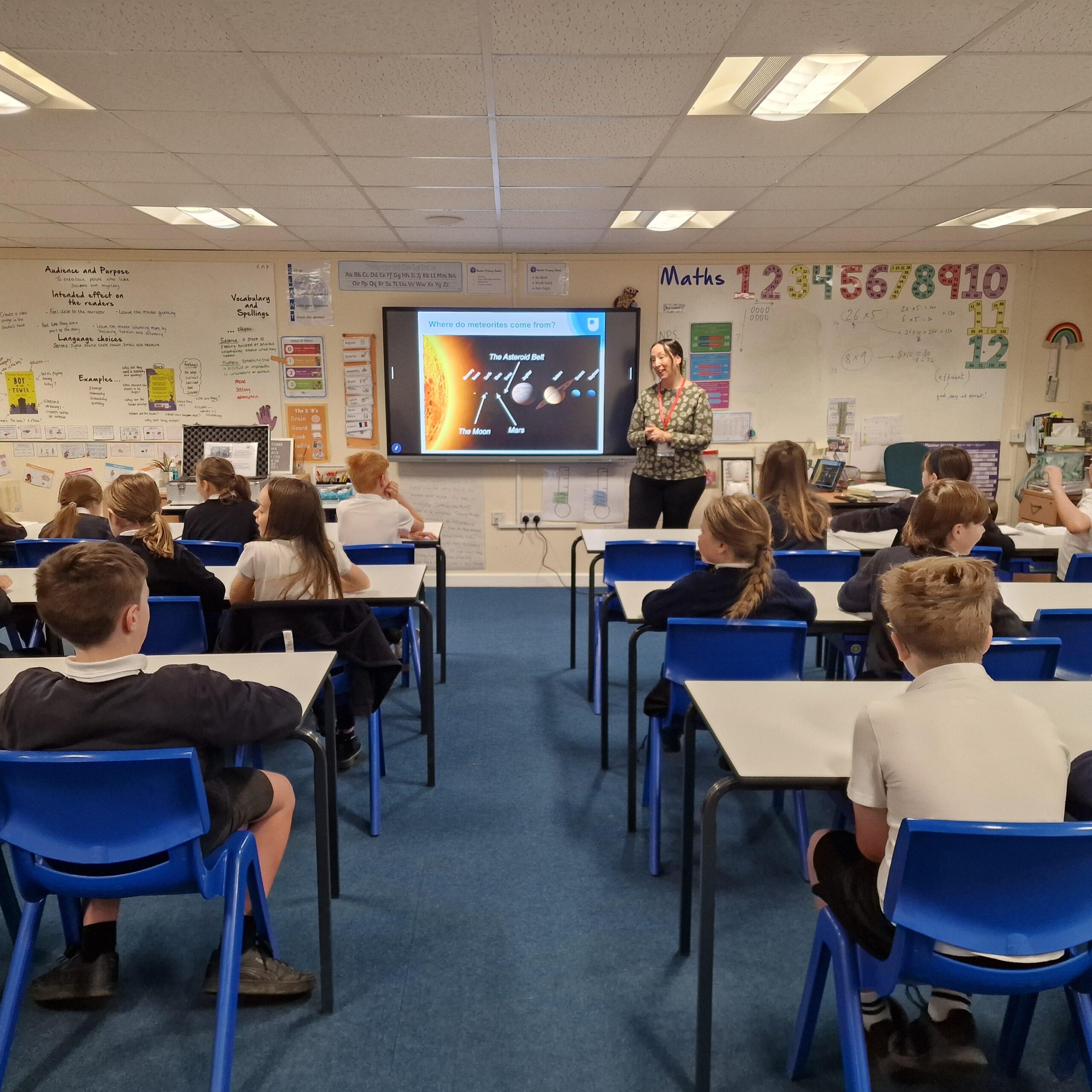
In March 2025, during British Science Week, Dr. Diane Turner embarked on an outreach tour across Cambridgeshire to showcase pieces from one of space science’s most fascinating subjects, meteorites. These extraordinary rocks, which survive the intense heat of entry through Earth’s atmosphere and land on our planet’s surface, offer a considerable link to the early solar system.
Meteorites come in three main types, stones, stony-irons, and irons and are further classified into primitive and processed groups. Primitive meteorites are particularly valuable to scientists because they retain the chemical makeup of the solar nebula, the cloud of gas and dust from which our Solar System formed over 4.5 billion years ago. Processed meteorites, on the other hand, originate from larger, differentiated bodies such as asteroids or even planetary crusts and cores, providing rare insights into planetary geology.
Although they can resemble ordinary rocks, meteorites often bear a distinctive dark, fusion crust formed during their high-speed journey through Earth’s atmosphere. Some are rich in metal, especially nickel-iron, which makes them magnetic and slightly easier to identify in the field.
The Open University in Milton Keynes, houses one of the UK’s most significant collections, comprising around 50,000 meteorite samples.
We spoke with several colleges and community centres that hosted Dr. Diane Turner to hear about their recent experiences engaging with real meteorite samples up close. For more on this, read our full article here.
Royal Society of Chemistry’s Pan Africa Chemistry Network (PACN)

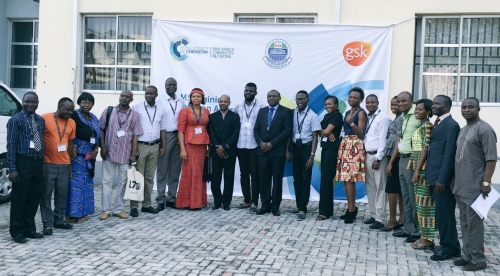
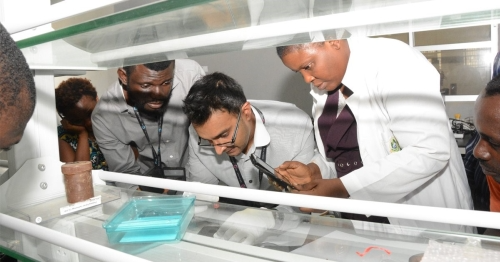
Anthias Consulting is part of an ambitious partnership working with the Royal Society of Chemistry and GSK. This partnership is increasing the analytical chemistry skills across Africa, with courses held courses in Ethiopia, Ghana, Kenya and Nigeria. This training programme aims to up-skill and empower scientists in Africa and develop practical analytical techniques to solve local challenges and contribute to global scientific knowledge. Find out more about the partnership on the RSC website.
In November 2017, Dr Imran Janmohamed from Anthias Consulting delivered a GC & GC-MS training workshop at the University of Lagos. Read the article ‘Yams and omelettes – a journey to Nigeria’ on the RSC website, a day-by-day account of Imran’s experiences facilitating the course.
In September 2017, Dr Giles Edwards from Anthias Consulting delivered the first training course in liquid chromatography to delegates in Nairobi, Kenya. Read more about the training here.
In November 2016 Dr Imran Janmohamed from Anthias Consulting facilitated at the first GC-MS training course at the University of Lagos in Nigeria. You can read more about Imran’s visit below.
Solutions in Science
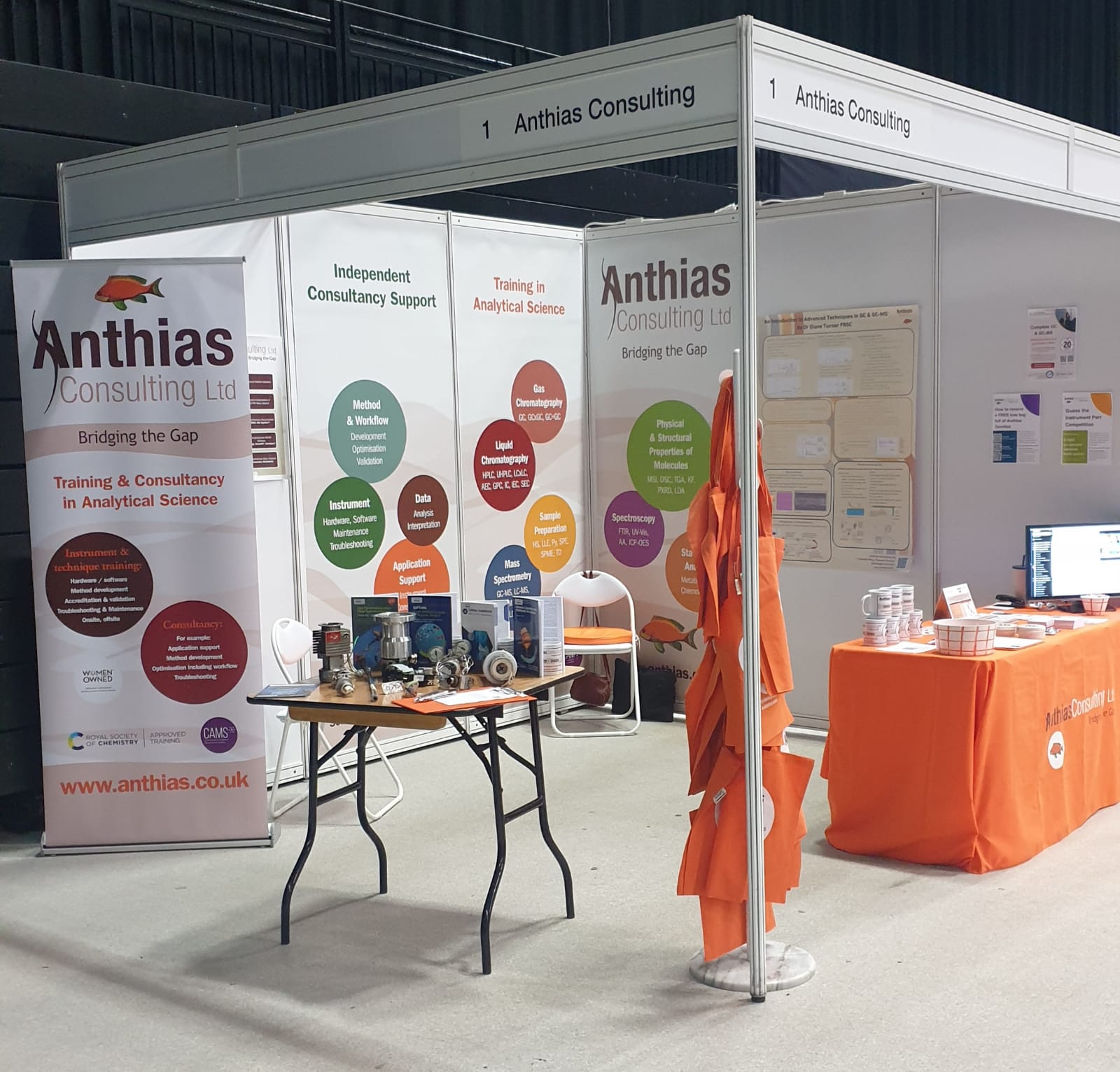
Solutions in Science (SinS) was originally conceived out of a desire to amalgamate many of the Royal Society of Chemistry’s Special Interest Group meetings into one larger and more comprehensive meeting. SinS showcases a complementary and diverse range of analytical topics which will allow for improved networking and collaboration between RSC interest groups and other learned and like-minded communities.
“SinS” brings together scientists and analytical chemists to discuss and explore the latest products, techniques and analytical Solutions. With “Sustainability” in mind one of the main aims of SinS is to bring together special interest groups to one large meeting rather than many smaller meetings which will cut down on travel and time but increase networking and information sharing capabilities.
Diane Turner has been an independent Scientific Committee Member for SinS (2022–present), and has overseen social media strategy and event growth.
International Women in Chromatography
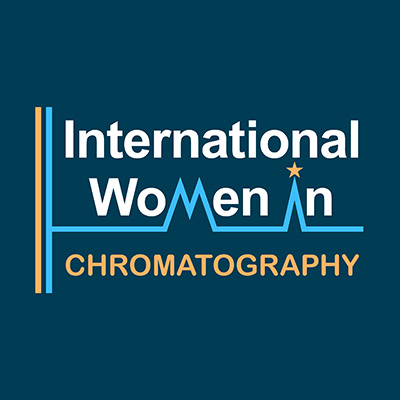
The International Women in Chromatography is a professional community with a dedicated group on LinkedIn aiming to support and connect women and non-binary people working or studying in the field of chromatography.
Founded by Diane Turner, Jacqueline Hamilton, and Caroline Gauchotte-Lindsay in 2024, the LinkedIn group, which now as over 400 members, is there to create a supportive & inclusive environment where members can thrive professionally & personally, advancing chromatography research & innovation worldwide.
International Symposium on Chromatography
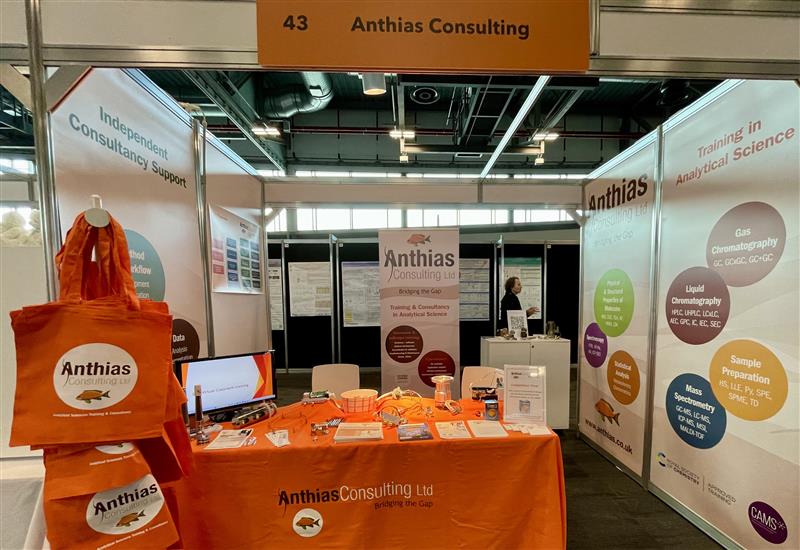
For the 2023 International Symposium on Chromatography (ISC), Diane was a Local Organising Committee Member. She worked on increasing the number of vendors exhibiting and sponsoring; improving the LinkedIn page and massively growing follower numbers alongside posting information; and general marketing tasks.
At the conference, Diane chaired multiple sessions, including a plenary speaker, judged posters, gave a tutorial and ran a networking session to launch the International Women in Chromatography Community.
© 2005–2025 Anthias Consulting Ltd – Experts in Analytical Chemistry Consulting and Training.

